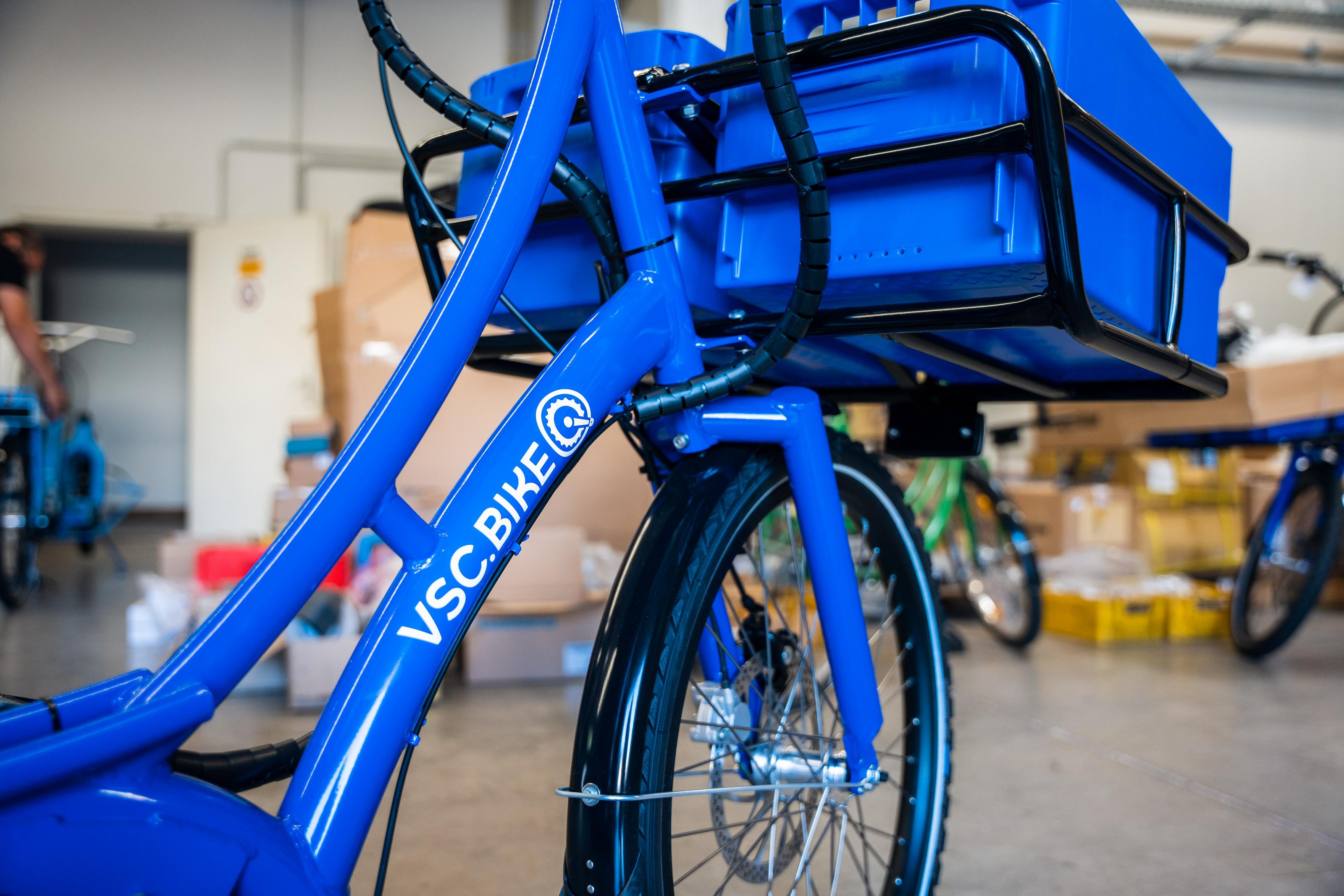Next-day delivery: suppliers rely on micro-hubs and cargo bikes
Ordered the evening before and delivered the next day: "Next Day Delivery" is now almost standard at Amazon. Fast delivery within 24 hours often makes the decisive difference in the highly competitive e-commerce market. Shoppers' expectations in terms of delivery time, customer service and quality have risen sharply in recent years - quick commerce is the new way of doing business online. High shipping quality, end-to-end tracking and fast deliveries are expected. However, the implementation of next-day delivery poses a number of logistical challenges for online stores. Micro-hubs and cargo bikes play a significant role here.
Trend Quick Commerce: Delivery in the next hour

In addition to the e-commerce market, the online food delivery market has also grown enormously. Customers have their supermarket purchases delivered directly to their homes, order from regional farmers in online farm stores or use food delivery services such as Gorillas or Flink. There are also numerous food deliveries from snack bars and restaurants. The coronavirus pandemic has reinforced the trend towards convenient food ordering habits, as have expectations. The question for logistics is: how can products be delivered fresh or warm, emission-free and in the shortest possible time to impatiently waiting customers? At peak times, the conventional delivery car is stuck in a traffic jam and has to find a parking space at its destination - a challenge in densely built-up residential areas or busy city centers.
Micro hubs: innovation for the last mile
The shorter the delivery times, the more complex the logistics behind them. Due to the complexity, however, delivery costs increase considerably and the "last mile" in particular is expensive. Added to this are the increasing requirements in terms of sustainability andCO2-neutral deliveries. To overcome these challenges, retailers are using so-called micro-hubs in combination with cargo bikes. Micro hubs are stationary (or mobile) collection points for parcels in city centers. The hubs are particularly suitable for perishable products such as food, medical or convenience products. They bundle the increased volume of consignments due to online retail and are the interface to the last mile. If necessary, deliveries are temporarily stored in the micro-hub before continuing their journey on low-emission cargo bikes. Intelligent route management can then save on transportation costs and shorten delivery times.
Attractive cities thanks to cargo bikes
Especially in densely built-up areas, deliveries by cargo bike will play a key role in the coming years, as cargo bikes, with or without electric drive, have a number of advantages over traditional delivery vehicles. Not only are they more sustainable and do not require expensive fuel, they are also usually faster in city traffic, can avoid traffic jams and are not dependent on scarce parking spaces. The time-consuming search for a parking space is eliminated and fewer sealed parking spaces are required. Even traffic-calmed areas such as pedestrian zones can be approached. Delivery by cargo bike therefore helps to slow down traffic in city centers and increases the quality of life, for example through reduced air and noise emissions, safe living environments and attractive retail locations.
Micro-hubs and cargo bikes are key elements in new mobility and logistics concepts. With small hubs as interfaces between recipients and distribution centers, as well as the use of cargo bikes, deliveries can be made even faster and, above all, more sustainably.
Whether for delivery or as a company bike, with cargo bikes from VSC Bike you can support your company's sustainability goals. Our experts will be happy to advise you.
